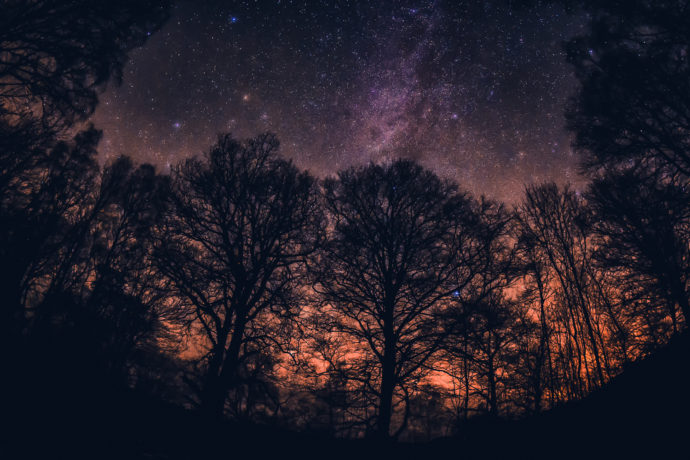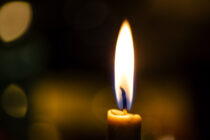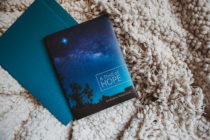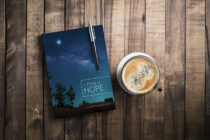“New life starts in the dark. Whether it is a seed in the ground, a baby in the womb, or Jesus in the tomb, it starts in the dark.”
—Barbara Brown Taylor
Here we are, firmly into the Advent season. These days are a complex mixture of holy moments peppering our busy lives. We find our minutes and hours filled with gifts to buy, dinners to cook, parties to plan or attend, families to visit. There are also driveways to be shoveled, lost loved ones to grieve, and lonely apartments to avoid. For the pastors among us, there are special services to plan, congregants to counsel, and our own weariness to manage.
There is so much left to be done that it’s easy to sprint our way through December without giving a moment to consider what is truly happening within us, without ever stopping long enough to hear the question our hearts are asking: What are we waiting for?
As we journey these days, it becomes obvious that our hearts are all waiting for something. We’re waiting for a relationship to find restoration, for a marriage to be healed, an addiction to be broken, or an offer of love to be returned. We wait for justice to rain from the heavens, we wait for equality for those who are excluded, and we hope for answers to long-persistent doubts. We hope for answered prayers and revival in our dwindling churches. As we plan our Christmas dinners, we long for the table to be full. We want mistakes to be erased and wounds to be healed.
There is, of course an answer to our hopes, desires, and needs. There is an answer to our persistent question. The answer, we are told, is found in the baby born in a manger. We know this cognitively. The problem isn’t finding the correct answer. The problem is found in the pain that comes from the waiting. The problem is in trusting the process and hoping in the promise.
While we sing songs about the coming Messiah, we do so all the while painfully aware that our relationships are still fractured, our souls still wounded, our hearts still divided. We’re haunted by empty dinner tables and dwindling churches. We are left filled with unanswered prayers. What are we waiting for?
If we’re completely honest, we worry the Advent promise will not be fulfilled. Sure, we will sing our songs, reflect on the nativity, light our candles, and pray into the darkness, but we will do so with a nagging worry that our questions, doubts, wounds, and fears will remain unanswered, left to surface when Advent comes again. We would be wise to linger here for a moment, though. The thing we’re feeling isn’t necessarily what it seems. It’s true that our hearts long for justice, for companionship, for friendship. We crave healing and forgiveness, but at a deeper level, what we search for—long for—is happiness, security, identity. These are the building blocks of life.
Psychologists teach us that children must grow in homes that feel safe in order for them to be healthy. To transition into health and wholeness, children must grow in an environment that offers them a solid and stable identity that will weather the stormy days of life. When we do not have those things, we do our best to fill that void. We will desperately pursue anything and everything in an attempt fill the vacuum. It’s why we pursue political power at the expense of our neighbor, it’s why we manipulate others to get what we need, and it’s why we consume (drugs, alcohol, sex, food, clothes, things) until we’re sick.
Left unattended, the human heart will continue to be restless and our souls forever adrift. Our needs will ache like a raw nerve, our pain coming out sideways on those whom we love most. Yes, we long for answers that are real, and Advent reminds us that we often look in the wrong places. As St. Augustine in his Confessions famously said, “Thou hast made us for thyself, O Lord, and our heart is restless until it finds its rest in thee.”
As we sit in the silence, waiting for the fulfillment of a long-ago-made promise, we find ourselves tempted to veer from the path, tempted to take a shortcut and manufacture our own happiness. We attempt to find happiness in consumption (“if I just have this house or that job”). We seek identity in relationships (“if only I could find the right partner”). We cling to political ideology in order to gain stability against our enemies (“if only we fill that Supreme Court vacancy”). However, in our pursuits of these things, we find ourselves sinking deeper and deeper into isolation, fear, and unfulfillment. Like quicksand, the more we struggle, cling, and fight, the deeper into despair we sink. What are we waiting for?
Advent, at its core, is the scandalous reminder that we’ll never find what we’re looking for in the usual places.
Advent, at its core, is the scandalous reminder that we’ll never find what we’re looking for in the usual places. Advent represents the declaration that the empire—in any of its forms—cannot give us what we need. Advent is a quiet reminder that capitalism, sexual experiences, and political power are no substitutes for the true belonging that comes from living within the already but not yet reality of the kingdom of God. To practice Spirit-led patience, forgiveness, submission, and hospitality is the salve that will heal our hearts.
It’s no surprise that the last Sunday of the church year (Christ the King Sunday) leads us into the first Sunday of the church year (the first week of Advent). We transition from declaring the coming of the rule and reign of Christ into the uncomfortable place of waiting. The kingdom is coming—but it’s not here yet. What are we waiting for?
For many of us, there is no easy answer to that question. While we know the end of the story (Christ will return), we do not know all the steps we must take to get there. So, for now, we sit in the dark waiting, hoping, longing. But there is good news for those of us in this uncomfortable in-between. As Barbara Brown Taylor beautifully says: “I have learned things in the dark that I could never have learned in the light, things that have saved my life over and over again, so that there is really only one logical conclusion. I need darkness as much as I need light.”








0 Comments